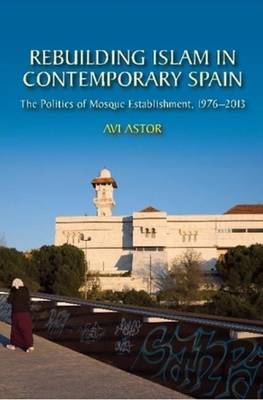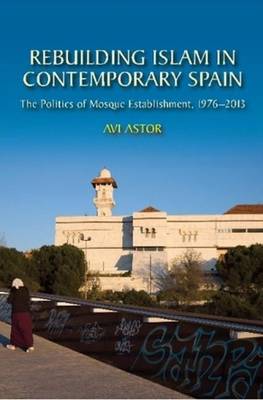
- Afhalen na 1 uur in een winkel met voorraad
- Gratis thuislevering in België vanaf € 30
- Ruim aanbod met 7 miljoen producten
- Afhalen na 1 uur in een winkel met voorraad
- Gratis thuislevering in België vanaf € 30
- Ruim aanbod met 7 miljoen producten
Zoeken
€ 101,95
+ 203 punten
Omschrijving
Following Spain's democratic transition during the late 1970s, political and business elites strategically exploited Spain's rich Islamic heritage in order to further projects of national redefinition, tourist promotion, and urban revitalisation. Large and ornate mosques were built in several Spanish regions, and the State granted Muslim communities an extensive array of rights and privileges that was arguably without parallel in Europe. Toward the onset of the 21st century, however, tensions surrounding Islam's growing presence in Spain became increasingly common, especially in the northeastern region of Catalonia. These tensions centered largely around the presence, or proposed establishment, of mosques in Barcelona and its greater metropolitan area. This book examines how Islam went from being an aspect of Spain's national heritage to be recovered and commemorated to a pressing social problem to be managed and controlled. It traces the events and developments that gave rise to this transformation, the diverse actors involved in the process, and the manner in which disputes over Muslim incorporation have become entangled with deeply-divisive debates over church-state relations and territorial autonomy. The core of the book centres on the shifting political and social dynamics surrounding the establishment of mosques, and the question of why anti-mosque mobilisations have been more prevalent and intense in Catalonia than other Spanish regions.
Specificaties
Betrokkenen
- Auteur(s):
- Uitgeverij:
Inhoud
- Aantal bladzijden:
- 256
- Taal:
- Engels
- Reeks:
Eigenschappen
- Productcode (EAN):
- 9781845199661
- Verschijningsdatum:
- 10/10/2018
- Uitvoering:
- Paperback
- Formaat:
- Trade paperback (VS)
- Afmetingen:
- 157 mm x 221 mm
- Gewicht:
- 362 g

Alleen bij Standaard Boekhandel
+ 203 punten op je klantenkaart van Standaard Boekhandel
Beoordelingen
We publiceren alleen reviews die voldoen aan de voorwaarden voor reviews. Bekijk onze voorwaarden voor reviews.











